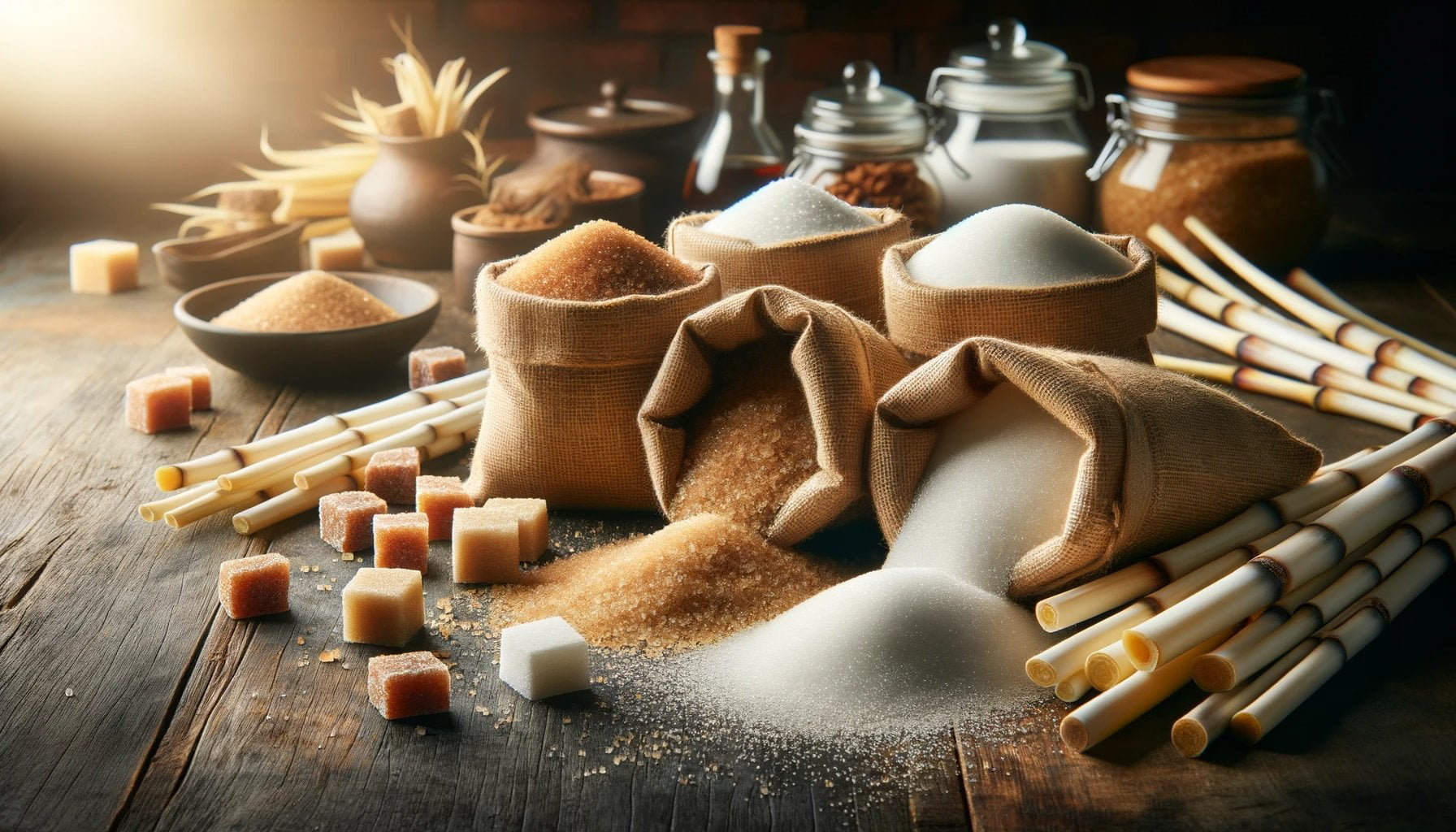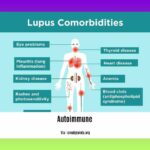Welcome to “Sugar: Surprising Facts for a Healthier Lifestyle”! Get ready to uncover the hidden truths about one of the most controversial components of our diets – sugar. As you delve into this article, be prepared to have your preconceived notions shattered and your understanding expanded. From mind-boggling statistics to jaw-dropping revelations, we will explore the fascinating world of sugar consumption and its impact on our overall health. Prepare to be amazed as we expose the surprising facts that will transform the way you think about sugar and empower you to make more informed choices for a healthier lifestyle.

Key Takeaways:
- Sugar is found in the fibers of all plants, but only sugarcane and sugar beet have enough to make sugar crystals.
- Sugar was first domesticated in New Guinea around 8000 B.C. and was initially introduced in the West as a spice, not a sweetener.
- Sugar has been used as a preservative and has medicinal qualities.
- There are different types of sugar, including brown sugar, Demerara sugar, and Muscovado sugar, depending on the source and processing.
Fun Facts About Sugar
In this section, we will uncover some fascinating and unexpected facts about sugar that will not only pique your interest but also provide valuable insights for leading a healthier lifestyle.
Sugar’s Ancient Origins
Did you know that sugar has been around for thousands of years? It dates back to 8000 B.C., where it was first domesticated in New Guinea. Initially, sugar was not used as a sweetener but rather as a spice. This ancient ingredient has certainly come a long way since then.
Sugar: A Rare and Expensive Commodity
Back in the day, sugar was considered a luxury item. It was so expensive and rare that only the elite could afford it. Can you imagine using sugar sparingly as if it were a precious jewel? It’s hard to believe when we can easily access it in our local supermarkets today.
Sugar’s Multiple Functions
Besides satisfying our sweet tooth, sugar has other surprising qualities. It acts as a preservative, enhancing the shelf life of certain foods. It also possesses medicinal properties, enabling it to be used in traditional remedies. Who would have thought that this common ingredient could have such diverse applications?
Unraveling the Different Types of Sugar
When it comes to sugar, there’s more than just the white granulated variety. Have you ever wondered about the differences between brown sugar, Demerara sugar, and Muscovado sugar? These variations depend on the source and processing methods used. Each type adds its own unique flavor and texture to culinary creations.
| Type | Description |
|---|---|
| Brown Sugar | Created by adding molasses to refined white sugar, it has a mild caramel flavor. |
| Demerara Sugar | This sugar retains natural molasses, giving it a distinct golden color and toffee notes. |
| Muscovado Sugar | Unrefined and with strong molasses flavors, it has a moist texture. |
These different sugar types offer an array of choices for those seeking to experiment with flavors in their recipes.
Sugar’s Plant Origins
Have you ever wondered where sugar comes from? While sugar is found in the fibers of all plants, only sugarcane and sugar beet have sufficient amounts to produce sugar crystals. Mother nature has truly gifted us with these plants that have become the main sources of sugar production worldwide.
Well, there you have it! These fun facts about sugar have shed some light on its origins, historical significance, and the variety of types available. Hopefully, this newfound knowledge will inspire you to appreciate and understand sugar in a different light as you make informed choices about your diet and overall well-being.
To learn about the fascinating process of sugar harvesting, click on this how is sugar harvested link.
Discover the secrets of sugar cultivation by clicking here: how is sugar grown.
Uncover the intricacies of cotton harvesting with this captivating how is cotton harvested link.
Excite your taste buds with a surprising fun fact about corn syrup by clicking here.
Sugar can impact your mood
Sugar has long been a staple in our diets, satisfying our sweet cravings and adding flavor to our favorite treats. But did you know that sugar can also have a significant impact on our mood and mental health? In this article, we will explore surprising facts about how sugar can affect your mood, debunk popular myths, and provide tips for a healthier lifestyle.
Sugar and Mood: The Surprising Connection
The consumption of excessive amounts of sugar can wreak havoc on our mood and mental well-being. Research has shown that high levels of sugar, particularly glucose, can lead to a decrease in alertness and an increase in fatigue [^1^]. In fact, long-term consumption of high amounts of sugar has been linked to depression and negative mental health symptoms [^2^].
It’s alarming to note that Americans are consuming an average of more than 13% of added sugars per day, exceeding the recommended limit [^3^]. And added sugars can be found in unexpected places like tomato sauce and salad dressings, making it challenging to track our sugar intake [^4^].
Sugar, Your Brain, and Mood Disorders
When we consume sugar, it causes a short-lived spike in dopamine, a neurotransmitter associated with pleasure and reward. However, this spike is quickly followed by a crash, characterized by sluggishness, irritability, and disinterest [^5^]. The erratic nature of this sugar-induced dopamine release can contribute to mood swings, anxiety, and even depression [^6^]. In fact, sugar has been found to be more addictive than cocaine and can lead to mood disorders in susceptible individuals [^7^].
Another way sugar impacts our mood is through inflammation. Excessive sugar consumption can contribute to chronic low-grade inflammation in the body, which has been associated with depression [^8^]. Furthermore, research has shown that refined carbohydrates and sugar consumption are linked to an increased risk of depression [^9^].
Men and Sugar: A Vulnerable Combination
Surprisingly, men may be more susceptible to the mental health effects of sugar. A study published in the journal Scientific Reports found that men who consumed high amounts of sugar were more likely to experience a worsened mood, compared to women [^10^]. While the exact reasons for this difference are still being studied, it highlights the importance of being mindful of sugar intake for everyone, regardless of gender.
Making Informed Choices for a Healthier Mood
It’s clear that excessive sugar consumption can have a negative impact on our mood and mental health. So, what can we do to make better choices for a healthier mood?
- Choose natural alternatives: Instead of reaching for sugar-sweetened beverages, try infusing water with fresh citrus fruit and herbs for a refreshing and healthier option.
- Be a mindful label reader: Sugar can hide in various forms on ingredient labels, so be vigilant when checking for added sugars in products like tomato sauce, salad dressings, and even cereals.
- Opt for whole foods: Reduce your reliance on processed foods and choose whole foods like fruits, vegetables, and lean proteins. These options provide essential nutrients without the added sugars and preservatives found in processed foods.
- Manage cravings: If you find yourself craving something sweet, try reaching for a piece of fruit or a small portion of dark chocolate to satisfy your craving without the negative mood effects of excessive sugar consumption.
Key Takeaways:
- Excessive sugar consumption can lead to decreased alertness, increased fatigue, and negative mental health symptoms.
- Consuming too much sugar can contribute to mood swings, anxiety, and even depression.
- Sugar is more addictive than cocaine and can lead to mood disorders.
- Men may be more susceptible to the mental health effects of sugar.
- Choosing natural alternatives, being mindful of labels, opting for whole foods, and managing cravings can help make informed choices for a healthier mood.
Sources:
[^1^]: How Sugar Affects Your Mood—and What You Can Do About It – Real Simple article
[^2^]: 7 Facts About Sugar and Depression: Is There a Connection? – Healthline article
Sugar: Surprising Facts for a Healthier Lifestyle
Hidden sugars, also known as added sugars, are sugars and syrups that are introduced during the processing of various foods. These sugars may not be explicitly labeled as “sugar” on food packaging, but they still contribute to the overall sugar content of the product. Familiar names like fructose, dextrose, and sucrose are some examples of hidden sugars. Syrups are another form of disguised sugar that consumers should be aware of.
Consumers may be surprised to find hidden sugars not only in obvious sugar-laden products like bakery items but also in seemingly healthier options. It is important to be vigilant and check the ingredients list for any names associated with hidden sugars. These sugars and their derivatives, such as fructose, dextrose, and sucrose, are commonly added to processed foods.
Reducing sugar intake can be challenging, but it is crucial for maintaining a healthy lifestyle. Here are some tips to help mitigate the consumption of hidden sugars:
- Read food labels carefully: Look for hidden sugar names, such as fructose, dextrose, and sucrose, on the ingredients list. Be cautious of products that contain syrups or other disguised forms of sugar.
- Choose whole foods: Opt for whole foods that are in their natural state, as they are less likely to contain hidden sugars.
- Limit processed foods: Processed foods, such as ready-to-eat meals and sugary snacks, often have added sugars. Limiting their consumption can significantly reduce sugar intake.
- Be mindful of condiments and sauces: Many condiments and sauces, including ketchup and spaghetti sauce, can have hidden sugar content. Opt for homemade versions or choose low-sugar alternatives.
- Monitor beverage choices: Be mindful of sugary drinks, including soda, sports drinks, and alcohol. Opt for water or unsweetened beverages whenever possible.
By following these tips, individuals can become more aware of the hidden sugars in processed foods and make informed decisions about their dietary choices. Remember, sugar is hidden in many processed foods, so it’s important to be a savvy consumer and prioritize your health.
Key Takeaways:
- Hidden sugars, also known as added sugars, are sugars and syrups introduced during food processing.
- These sugars may not be explicitly labeled as “sugar” on food packaging.
- Familiar names like fructose, dextrose, and sucrose are examples of hidden sugars.
- Syrups are another form of disguised sugar.
- Hidden sugars can be found in both sugary and seemingly healthier options.
- Reading food labels and being vigilant about hidden sugar names can help reduce sugar intake.
- Choosing whole foods and limiting processed foods can also mitigate hidden sugar consumption.
- Being mindful of condiments, sauces, and beverage choices plays a crucial role in managing sugar intake.
Sources:
1. To Taste: Hidden Sugars: What Are They and Where Do We Find Them?
2. Hello Doctor: What are Hidden Sugars? 9 Foods That Secretly Contain a Lot of Sugar
Artificial Sweeteners: Not a Healthier Alternative to Sugar
Artificial sweeteners have long been advertised as a healthier alternative to sugar, but recent studies have raised concerns about their potential risks to human health. In fact, some research has even suggested that artificial sweeteners may be worse for our health than sugar itself.
One study, published in the British Medical Journal, found a link between regular consumption of certain artificial sweeteners and an increased risk of heart disease[^1^]. The study’s authors warned that these sweeteners should not be considered a healthy and safe alternative to sugar. Functional medicine specialist Dr. Melissa Young agrees, stating that both sugar and artificial sweeteners pose problems for our health. However, when comparing the two, artificial sweeteners are far worse[^2^]. Dr. Young emphasizes that the best option is to avoid added sugar altogether[^3^].
Artificial sweeteners are not metabolized by the body in the same way as sugar. They provide a sweet taste without the added calories, but their chemicals are recognized by the sweetness receptors on our tongues[^4^]. This may explain why they can still be harmful to our health.
While artificial sweeteners may have fewer calories than sugar, they come with their own set of health risks. Some studies suggest that they can increase the risk of heart disease and other health conditions[^5^]. Additionally, artificial sweeteners have been associated with negative effects on the brain and addiction-like behaviors[^6^].
It’s important to note that not all experts agree. Some studies have found no significant health risks associated with artificial sweeteners[^7^]. However, the potential risks and uncertain long-term effects warrant caution when consuming these sweeteners.
In conclusion, artificial sweeteners may not be a healthier alternative to sugar after all. Research has linked them to a higher risk of heart disease, and some experts argue that they are worse for our health than sugar itself. It may be best to limit or avoid the use of artificial sweeteners altogether and opt for natural alternatives, or simply reduce overall sugar intake.
Key Takeaways:
- Research suggests that artificial sweeteners may be worse for our health than sugar.
- Regular consumption of certain artificial sweeteners can increase the risk of heart disease.
- Functional medicine specialist Dr. Melissa Young advises avoiding both sugar and artificial sweeteners for better health.
- Artificial sweeteners are chemically recognized by the sweetness receptors on our tongues, which may contribute to their potential harmful effects.
- Studies have associated artificial sweeteners with negative impacts on the brain and addiction-like behaviors.
- While some studies suggest no significant health risks, it’s important to consider the potential long-term effects of artificial sweeteners.

FAQ
Q1: What are some interesting facts about the origins of sugar?
A1: Sugar has a rich history and was first domesticated in New Guinea around 8000 B.C. It was introduced in the West as a spice, not a sweetener, and was initially expensive and rare. Sugarcane and sugar beet are the only plants that have enough sugar to make sugar crystals.
Q2: What are the different types of sugar?
A2: There are various types of sugar depending on the source and processing. Some examples include brown sugar, Demerara sugar, and Muscovado sugar.
Q3: How does sugar consumption affect our mood and mental health?
A3: Consuming too much sugar can contribute to mood swings, anxiety, and depression. Sugar can cause a short-lived spike in dopamine, leading to a crash characterized by sluggishness, irritability, and disinterest. Additionally, long-term high sugar consumption has been linked to depression and negative mental health symptoms.
Q4: What are some unexpected sources of added sugars?
A4: Added sugars can be found in unexpected places like tomato sauce and salad dressings, making it challenging to track sugar intake. It’s important to read food labels carefully and be mindful of condiments and sauces that may contain hidden sugar content.
Q5: How can I reduce my sugar intake for a healthier lifestyle?
A5: To reduce sugar intake, it is suggested to read food labels carefully and be aware of hidden sugar names such as fructose, dextrose, and sucrose. Opting for whole foods in their natural state can also help reduce hidden sugar consumption. Limiting processed foods, monitoring beverage choices, and being mindful of condiments and sauces can further contribute to reducing sugar intake.









